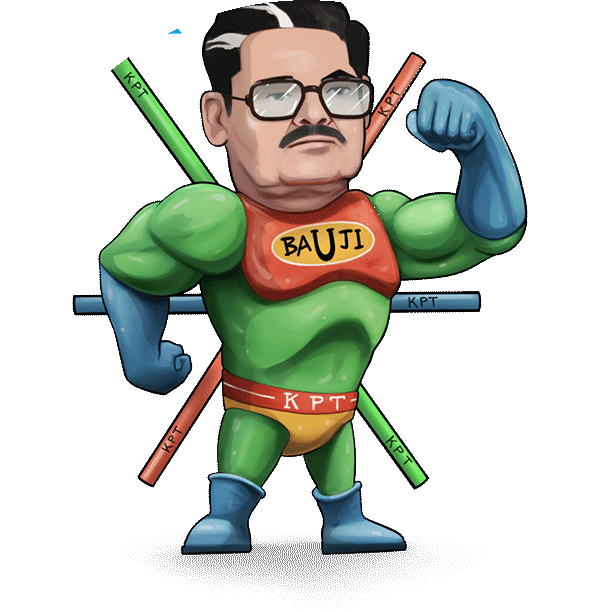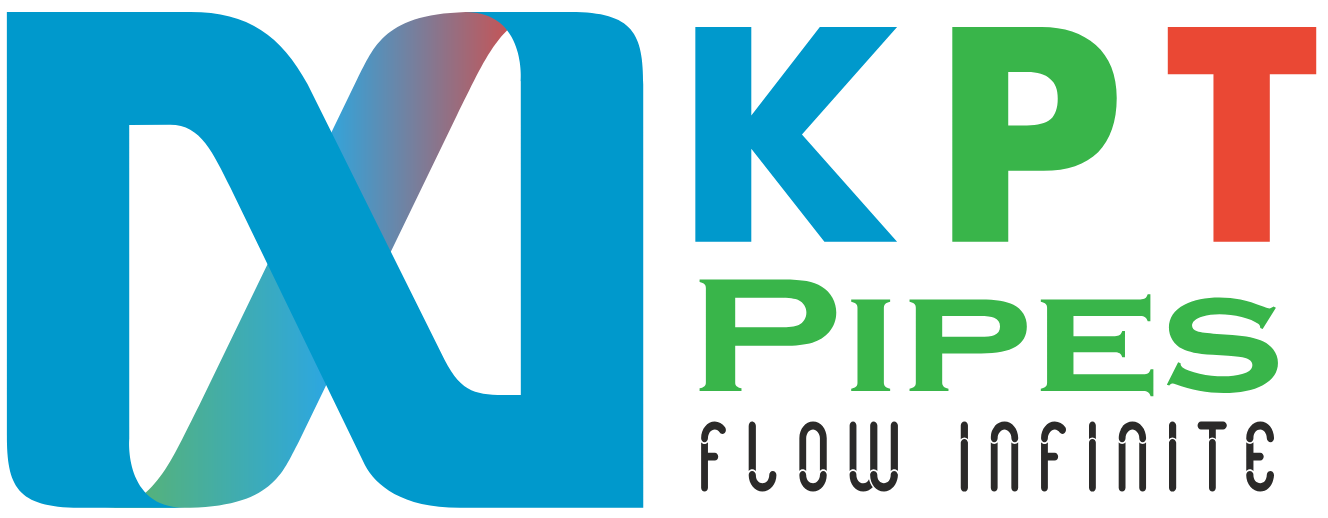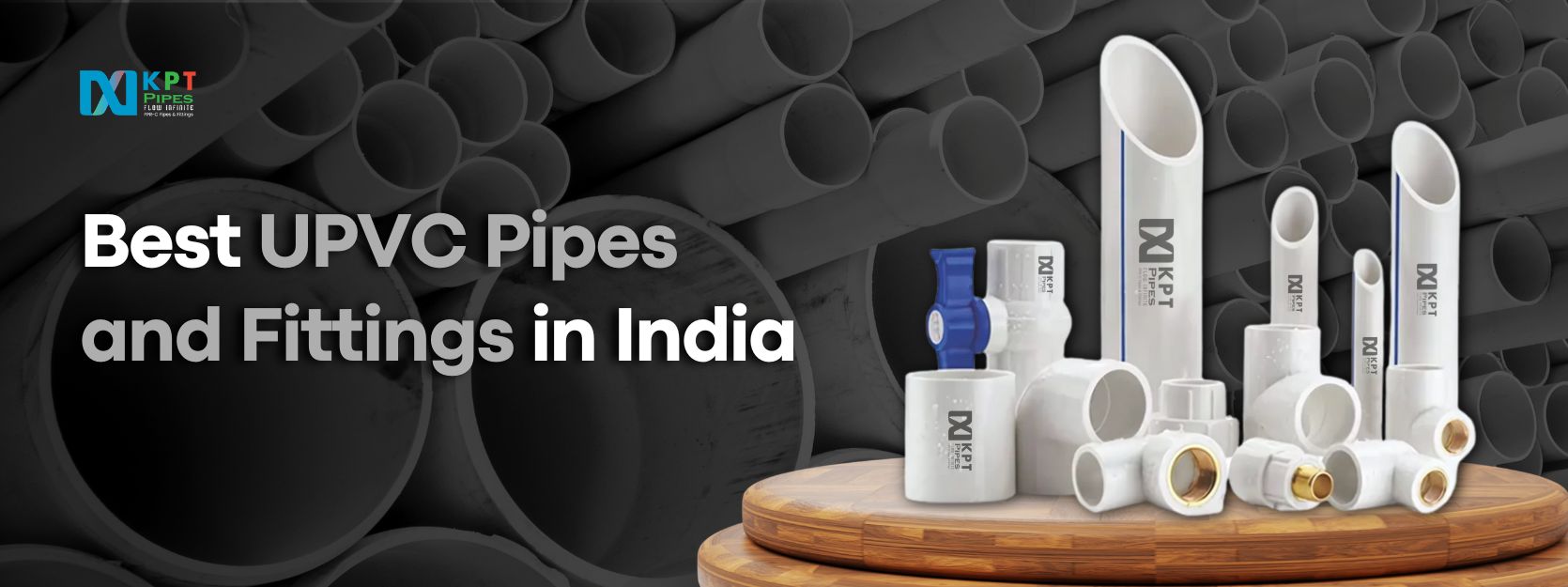When it comes to reliable and durable plumbing solutions, UPVC pipe and fittings are among the top choices for construction, industrial, and residential projects. Their rising popularity in India is due to their cost-effectiveness, long lifespan, and adaptability across various applications, including water supply, drainage, sewage, and irrigation systems. As a leading provider of top-quality plumbing solutions, KPT Pipes ensures that only the best UPVC pipes in India reach the market, meeting the highest industry standards with superior performance.
In this comprehensive guide, we will explore everything you need to know about UPVC pipes and fittings, including their advantages, types, applications, and how they compare to other materials. Whether you’re building a new home, managing a commercial project, or upgrading your plumbing system, understanding why UPVC is the go-to choice for modern plumbing will help you make an informed decision.
Table of Contents
ToggleWhat are UPVC Pipes and Fittings?
UPVC (Unplasticized Polyvinyl Chloride) pipes and fittings are a type of plastic piping system widely used in plumbing and construction. Unlike traditional PVC pipes, UPVC is rigid and does not contain plasticisers, which makes it stiffer and more durable. These pipes are known for their excellent resistance to corrosion, chemicals, and weather conditions, making them ideal for both indoor and outdoor use.
UPVC pipes are commonly used for water supply systems, sewage systems, and drainage applications. They offer a lightweight, easy-to-install alternative to metal pipes, with the added benefit of being resistant to scale formation and other build-up that can clog or damage other pipe materials.
Fittings made from UPVC include elbows, tees, couplings, and valves, designed to securely join pipes and maintain the efficiency of the plumbing system. With their long lifespan, low maintenance needs, and cost-effectiveness, UPVC pipes and fittings have become a popular choice in modern plumbing and infrastructure projects.
The primary advantages of using UPVC pipes in India include:
High Durability – UPVC pipes can withstand extreme weather conditions, including high temperatures, direct UV exposure, and moisture, making them perfect for both indoor and outdoor installations.
Corrosion Resistance – Unlike metal pipes, UPVC does not rust, corrode, or degrade over time, ensuring a long-lasting plumbing system with minimal maintenance.
Non-Toxicity – UPVC is a safe material for transporting drinking water, as it does not leach harmful chemicals, making it ideal for potable water supply systems.
Lightweight – Compared to metal pipes, UPVC pipes are significantly lighter, making them easier to handle, transport, and install, reducing labour and transportation costs.
Affordable – UPVC pipe is cost-effective as compared to other materials like copper, steel, and brass, making it a budget-friendly yet high-performance choice for plumbing needs.
Applications of UPVC Pipes in India
1. Water Supply Systems
UPVC pipe is widely used in residential, commercial, and industrial water distribution systems due to its non-toxic, rust-resistant, and leak-proof properties. Their smooth inner surface ensures an uninterrupted flow of clean water.
2. Agricultural Irrigation
UPVC pipes are highly preferred in agricultural settings for efficient irrigation systems. They provide a steady water supply to crops, helping farmers optimise water usage and enhance crop yield.
3. Drainage & Sewerage Systems
With their high durability and chemical resistance, UPVC pipes are ideal for underground drainage and sewage systems. They prevent clogging, leakage, and contamination, ensuring efficient waste management.
4. Chemical & Industrial Applications
Industries rely on UPVC pipes for transporting chemicals and industrial fluids due to their non-reactive nature. They do not corrode or degrade, making them safe for handling aggressive chemicals.
6. Borewell Casing and Tube Wells
UPVC pipes are used as casing pipes for borewells due to their ability to withstand high pressure and environmental stress, ensuring a reliable water extraction system.
Types of UPVC Pipes
1. UPVC Plumbing Pipes
Used primarily for water supply in residential, commercial, and industrial buildings, these pipes are corrosion-resistant, lightweight, and easy to install, ensuring hassle-free plumbing solutions.
2. UPVC Pressure Pipes
Designed to withstand high-pressure applications, these pipes are widely used in water distribution, agricultural irrigation, and industrial fluid transportation for efficient and reliable performance.
3. UPVC SWR (Soil, Waste & Rain) Pipes
These pipes are specially designed for the efficient drainage of soil, waste, and rainwater. They are non-corrosive, leak-proof, and ideal for sanitation systems in urban and rural areas.
4. UPVC Casing Pipes
UPVC casing pipes are used in borewells and tube wells to ensure safe and efficient water extraction. They come in various designs, including ribbed screens and plain casing pipes, based on different needs.
5. UPVC Column Pipes
These pipes are specifically designed for use in submersible pump installations, where they can withstand high pressure and extreme depths, ensuring long-lasting functionality.
6. UPVC Drainage Pipes
UPVC drainage pipes are highly durable and resistant to chemical corrosion, making them ideal for sewage and wastewater management systems, ensuring a longer service life.
Types of UPVC Fittings
1. UPVC Couplings
UPVC couplings are essential for connecting two pipes of the same diameter, ensuring a strong, leak-proof joint in plumbing systems.
2. UPVC Elbows
UPVC elbows, available in 45° and 90° angles, efficiently change the direction of fluid flow in plumbing and drainage applications.
3. UPVC Tees
UPVC tees help in branching pipe systems into two different directions and are available in both equal and reducing (unequal) variants.
4. UPVC Reducers
UPVC reducers enable a smooth transition between pipes of different diameters, maintaining a steady flow and reducing pressure loss.
5. UPVC End Caps
UPVC end caps effectively seal the ends of pipes, preventing dirt, debris, and contaminants from entering the pipeline system.
6. UPVC Ball Valves
UPVC ball valves provide a simple yet efficient on/off control mechanism, making them ideal for regulating water flow in plumbing networks.
7. UPVC Unions
UPVC unions allow easy disconnection and reconnection of pipes for maintenance without requiring a complete dismantling of the system.
8. UPVC Pipe Clamps
UPVC pipe clamps securely hold pipes in place, reducing vibrations and preventing movement, ensuring stability in plumbing installations.
What is the Difference Between PVC & UPVC?
PVC (Polyvinyl Chloride) and UPVC (Unplasticized Polyvinyl Chloride) are widely used materials in plumbing and construction, but they have key differences.
PVC contains plasticizers, making it flexible and suitable for applications like plumbing pipes, electrical insulation, and medical tubing. However, its flexibility can make it less durable in high-pressure environments.
UPVC, on the other hand, does not contain plasticisers, making it rigid and more durable. It is commonly used in window frames, doors, and drainage systems. UPVC is also more resistant to weathering, chemicals, and UV exposure, making it ideal for outdoor applications.
Another key difference is safety. UPVC is non-toxic and widely used in water supply systems, while PVC may release harmful chemicals over time.
Choosing between PVC and UPVC depends on the application—PVC for flexible needs like wiring and UPVC for rigid, long-lasting structures like piping and frames.
Choosing the Best UPVC Pipes in India
When selecting the UPVC pipes in India, several factors must be considered:
1. Quality and Standards Compliance
- Ensure that the pipes comply with BIS (Bureau of Indian Standards) and ISO certifications.
- Look for lead-free and non-toxic materials to ensure a safe water supply.
2. Pressure Ratings and Durability
- Choose pipes with appropriate pressure ratings depending on the application.
- High-pressure handling capacity is essential for commercial and industrial use.
3. Reputation of the Manufacturer
- Go for established brands like KPT Pipes, known for their superior quality and reliability.
- Ensure the manufacturer provides after-sales support and a warranty.
4. Ease of Installation
- Opt for pipes that come with easy jointing mechanisms such as solvent cement welding.
- Ensure the fittings are compatible with the piping system to avoid leaks.
KPT Pipes: The Leading UPVC Pipes Manufacturer in India
KPT Pipes is a trusted name in the Indian piping industry, offering UPVC pipes and fittings in India that meet the highest standards. Here’s why KPT Pipes stands out:
- Superior Quality Products – KPT Pipes manufactures the best UPVC pipe in India that adheres to ISO and BIS standards.
- Lead-Free and Non-Toxic – Ensuring a safe and hygienic water supply.
- High Durability – Designed to withstand high pressure and temperature variations.
- Comprehensive Range of Products – A complete selection of UPVC pipe and fittings for various applications.
- Eco-Friendly and Cost-Effective – Offering sustainable and budget-friendly piping solutions.
- Advanced Manufacturing Technology – Using state-of-the-art facilities to ensure precision and quality.
Installation and Maintenance of UPVC Pipes
Installation Guide
- Measure and Cut – Use a fine-toothed saw for a clean cut.
- Deburring and Cleaning – Remove burrs and clean the pipe ends.
- Apply Solvent Cement – Use recommended adhesive for a secure fit.
- Join and Hold – Insert fittings and hold them in place for a few seconds.
- Curing Time – Allow proper drying time before use.
Maintenance Tips
- Regular Inspection – Check for leaks or damage periodically.
- Avoid Heavy Loads – Do not place heavy objects on the pipes.
- Proper Cleaning – Use mild cleaning agents to prevent buildup.
- Temperature Consideration – Avoid exposure to direct sunlight for prolonged periods.
Price Of UPVC Pipes and Fittings in India
The Cost of UPVC pipes and fittings in India varies based on factors such as size, brand, quality, and application. Generally, UPVC pipes are affordable compared to metal alternatives, making them a cost-effective choice for plumbing, drainage, and irrigation systems. The cost depends on diameter, pressure rating, and additional features like UV resistance or chemical protection. Bulk purchases often reduce the overall price, while premium brands may charge more for durability and reliability. Local market rates, transportation costs, and installation charges can also influence the final expense. Overall, UPVC pipes offer a budget-friendly yet durable solution for various piping needs.
Conclusion
If you are looking for UPVC pipes in India, KPT Pipes is your go-to choice. With their high-quality products, advanced technology, and commitment to sustainability, KPT Pipes offers reliable UPVC pipes for all types of plumbing needs. Whether it’s for household plumbing, industrial applications, or irrigation systems, KPT Pipes ensures efficiency, durability, and cost-effectiveness.
For more information on UPVC pipe in India, explore the wide range of products offered by KPT Pipes and choose the best solutions for your needs.
FAQs on UPVC Pipes and Fittings
Q1. What makes UPVC pipes different from regular PVC pipes?
Ans: UPVC pipes are more rigid and durable because they do not contain plasticizers, making them ideal for high-pressure applications, whereas PVC pipes are more flexible and used in applications like insulation and medical tubing.
Q2. Are UPVC pipes safe for the drinking water supply?
Ans: Yes, UPVC pipes are non-toxic, lead-free, and do not leach harmful chemicals, making them completely safe for transporting potable water.
Q3. What are the main advantages of using UPVC pipes and fittings in India?
Ans: UPVC pipes offer high durability, corrosion resistance, lightweight design, affordability, and suitability for various applications, including plumbing, irrigation, and drainage.
Q4. Where are UPVC pipes commonly used?
Ans: They are widely used in residential and commercial water supply, agricultural irrigation, drainage systems, industrial fluid transport, borewells, and electrical conduits.
Q5. How do UPVC pipes compare to metal pipes?
Ans: UPVC pipes are lightweight, corrosion-resistant, and more affordable than metal pipes, which are heavier, prone to rusting, and require more maintenance.



